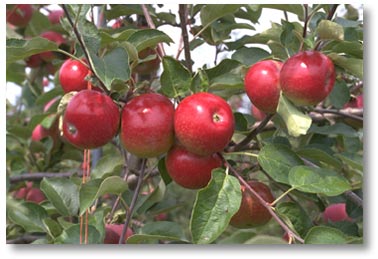 A company that supplied a baby food maker with apples contaminated with rodenticides is liable for damages for breach of contract, a federal judge in Rochester, N.Y., has ruled.
A company that supplied a baby food maker with apples contaminated with rodenticides is liable for damages for breach of contract, a federal judge in Rochester, N.Y., has ruled.
The decision rejected a bid by Thruway Produce Inc. to force a trial on the issue of its liability but leaves open the question of how much in damages that insurers for Milnot Holding Corp. — the former owner of Beech-Nut Nutrition Corp. — are entitled to.
The suit claims Beech-Nut lost $1.5 million because it voluntarily withdrew the affected products from the market in early 2006.
Thruway was the exclusive supplier of apples to Beech-Nut’s baby food and toddler food plant in Canajoharie, N.Y., for the 2005-06 season. The contract required the fruit to be free of rodenticides, poisons used to kill mice and rats.
On four occasions in 2006, workers at the plant discovered rodenticide pellets that were embedded in apples or had fallen into the processing machinery.
Beech-Nut returned the contaminated apples and notified the Food and Drug Administration’s Office of Criminal Investigation because it was concerned about possible employee sabotage.
No criminal charges or other official FDA action resulted from the investigation, according to Pat El-Hinnawy, a senior public affairs specialist at the federal agency.
Beech-Nut sued Thruway for breach of contract, negligence, breach of warranty and other claims.
In his decision, U.S. District Judge Charles Siragusa rebuffed Thruway’s argument that a trial is necessary to determine whether a Beech-Nut employee had sabotaged the apples with the rodenticide.

Apples contaminated with rodenticides were found on four separate occasions upon arrival at a Beech-Nut Nutrition Corp. plant in Canajoharie, N.Y.
There was insufficient evidence that “internal tampering” was the source of the pellets rather than the apples that Thruway supplied, Siragusa said.
And the fact that Thruway “instructed its suppliers not to use rodenticides inside their storage facilities is relevant,” he said, given that one supplier violated those instructions.
Thruway’s lawyer, Thomas Speyer of Buffalo, N.Y., said his client never handled the apples because they all came directly to the plant from individual suppliers. The court ruling leaves open Thruway’s claims against those five companies, an issue that he said he expects the judge to address next.
Beech-Nut didn’t use apples from the first two batches to manufacture any baby food. Instead, it returned those apples to the suppliers, according to Speyer.
However, he said Beech-Nut failed to mitigate — minimize — its financial damages because the plant used contaminated apples from the final deliveries, thus incurring expenses from manufacturing, shipping and withdrawing the products from the market.
“In my opinion, it never should have been turned into manufactured products,” Speyer said.
A lawyer for Milnot, Diana McMonagle of New York City, declined to comment on the case.
